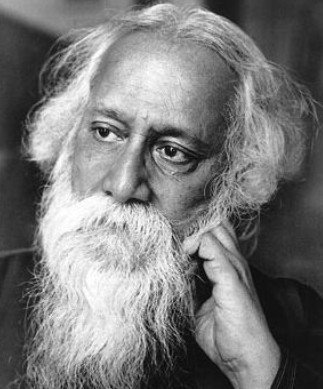Books and Arts; Book Review;
From the Ruins of Empire: The Revolt Against the West and the Remaking of Asia. By Pankaj Mishra.

Rarely has the prestige of the West fallen lower in Asian eyes. Seemingly endless wars and the attendant abuses, financial crisis and economic malaise have made Europe and America look less like models to aspire to than dire examples to be shunned. In response, Asian elites are searching their own cultures and intellectual histories for inspiration.
以前,在亞洲人眼中,西方似乎得神庇護(hù),很少落后于亞洲。不過(guò),似乎沒(méi)完沒(méi)了的戰(zhàn)爭(zhēng)和隨之而來(lái)的虐待、金融危機(jī)和經(jīng)濟(jì)瘟疫使歐洲和美國(guó)不再是亞洲人心中值得學(xué)習(xí)的榜樣,卻成為人們唯恐避之不及的悲慘對(duì)象。與之相照應(yīng)的是,亞洲精英們正在本國(guó)文化和思想史中尋找靈感。
As Pankaj Mishra, a prolific Indian writer, shows in this subtle, erudite and entertaining account of Asian intellectuals’ responses to the West, much the same was true over a century ago. He defines Asia broadly, as bordering with Europe at the Aegean Sea and Africa at the River Nile. A century ago, what he calls “an irreversible process of intellectual…decolonisation” was under way across this huge region. For Mr Mishra, and many Asians, the 20th century’s central events were the “intellectual and political awakening of Asia and its emergence from the ruins of both Asian and European empires”. China and India have shaken off foreign predators and become global powers. Japan has risen, fallen and risen again. It is commonplace to describe the current century as Asia’s.
印度高產(chǎn)作家潘卡旭以精細(xì)、博學(xué)和有趣的文筆描繪出亞洲知識(shí)分子對(duì)西方的反應(yīng),他們的反應(yīng)與一個(gè)多世紀(jì)前的人們的反應(yīng)差不多。他把亞洲籠統(tǒng)地定義為一個(gè)在愛(ài)琴海區(qū)域與歐洲接壤、在尼羅河與非洲接壤的地區(qū)。據(jù)他所說(shuō),一個(gè)世紀(jì)以前,“一場(chǎng)不可逆轉(zhuǎn)的思想非殖民化的過(guò)程”正在這一遼闊地區(qū)如火如荼地開展。對(duì)米希爾先生和很多亞洲人來(lái)說(shuō),20世紀(jì)的這一主要運(yùn)動(dòng)其實(shí)是“亞洲人的知識(shí)和政治上的覺(jué)醒,以及亞洲各國(guó)在亞洲強(qiáng)國(guó)和歐洲帝國(guó)殖民統(tǒng)治的廢墟中崛起”。中國(guó)和印度都擺脫了外國(guó)列強(qiáng)的統(tǒng)治,并位于世界強(qiáng)國(guó)之列。日本則是強(qiáng)盛、倒下、又再次崛起。如今,二十一世紀(jì)被描繪成亞洲時(shí)代的這一說(shuō)法是家喻戶曉。
Mr Mishra tells the story of this resurgence through the lives of a number of pivotal figures, as they grappled with the dilemma of how to replicate the West’s power while retaining their Asian “essence”. He pays most attention to two, both little known in the West. One, Jamal al-Din al-Afghani, was like most of them “neither an unthinking Westerniser, nor a devout traditionalist”. Despite his name, and despite a tomb in Kabul restored at America’s expense, al-Afghani was born in Persia in 1838. An itinerant Islamist activist, he also spent time in Egypt, India, Turkey and Russia, railing against the feebleness and injustices of Oriental despotisms and the immorality of Western imperialism, and trying to forge a Pan-Islamic movement. He had the ear of sultans and shahs.
通過(guò)再現(xiàn)歷史風(fēng)云人物的生活,米什拉講述了國(guó)家復(fù)興的故事,但這些風(fēng)云人物為在確保亞洲“核心”的同時(shí),如何復(fù)制西方強(qiáng)國(guó)的繁榮而進(jìn)退兩難、煩惱不已。對(duì)西方世界完全陌生的兩個(gè)人,他在筆墨間卻傾注了很多關(guān)心。一位是哲馬魯丁•阿富汗尼,就像大多數(shù)的歷史人物一樣“并非不加思考的照搬西方者,也非食古不化的傳統(tǒng)者”。盡管他的姓名很奇怪,美國(guó)人修整了喀布爾(阿富汗的首都)的墳?zāi)梗?838年,阿富汗尼出生在波斯(西南亞國(guó)家,現(xiàn)稱伊朗)。作為一名行走中的伊斯蘭積極分子,他在埃及、印度、土耳其和俄國(guó)都呆過(guò),他抱怨東方獨(dú)裁統(tǒng)治的脆弱和不公,也責(zé)怪西方帝國(guó)主義的不道德,甚至試圖開展泛伊斯蘭教運(yùn)動(dòng)。他有蘇丹(某些伊斯蘭國(guó)家統(tǒng)治者的稱號(hào))和伊朗國(guó)王的耳目。
The other main character is Liang Qichao, a leading Chinese intellectual in the twilight of the last imperial dynasty, the Qing, and the chaotic early years after it fell in 1911. Steeped in the old Confucian traditions and aghast at the weak new republic, he came to the conclusion that “the Chinese people must for now accept authoritarian rule; they cannot enjoy freedom”. Writing in 1903, however, he saw this as a temporary phenomenon. He would have been surprised to find China’s rulers today arguing much the same.
另一個(gè)主人公是梁?jiǎn)⒊袊?guó)最后一個(gè)封建王朝——清朝的一個(gè)杰出知識(shí)分子,他在晚清時(shí)期和清王朝1911年被推翻后,混亂不堪的最初幾年里都有很大影響。他深受傳統(tǒng)儒家思想的毒害,卻又被脆弱的新民主共和國(guó)嚇呆了,所以得出一個(gè)結(jié)論:“從現(xiàn)在起,中國(guó)人必須接受帝制統(tǒng)治的現(xiàn)實(shí),他們享受不了自由”。這句話寫于1903年,他把民國(guó)時(shí)期的存在視為暫時(shí)現(xiàn)象。如果看到現(xiàn)在的中國(guó),他可能驚訝地發(fā)現(xiàn)當(dāng)今的統(tǒng)治者也在抱怨同樣的問(wèn)題。
Two other developments would also have surprised these men. The first is how disastrously some of the syntheses of West and East worked out: from Mao’s and Pol Pot’s millenarian communism, to al-Qaeda’s brand of Islamist fundamentalism and Japan’s replication of the worst traits of Western imperialism.
其它兩個(gè)發(fā)展也可能嚇著這樣的人。第一個(gè)是西方和東方的一些結(jié)合體造成的災(zāi)難性影響:從毛澤東時(shí)代和Pol Pot’s的千年共產(chǎn)主義,到打著伊斯蘭原教主義旗號(hào)的基地組織和日本復(fù)制西方帝國(guó)主義的陋習(xí)。
Japan’s later aggression helps explain the other surprise: that in many ways the links between Asian thinkers look more tenuous now than they did a century ago. Then, men such as Liang, or Rabindranath Tagore (pictured) from Bengal, would travel to Tokyo. They would dream of a pan-Asian response to the West, inspired by Japan’s example. China is now the coming Asian power, but it is not an intellectual hub of pan-Asianism, either in Communist orthodoxy or in efforts to revive Confucianism. And the Islam of al-Afghani’s ideological heirs has made little headway in non-Muslim countries.
之后日本侵略各國(guó)的事實(shí)幫助解釋了另一件奇事:從很多方面看來(lái),現(xiàn)在亞洲思想家間聯(lián)系比千年前的思想家們的聯(lián)絡(luò)都蒼白無(wú)力。那時(shí),像梁?jiǎn)⒊@樣的人,或者來(lái)自孟加拉的Rabindranath Tagore(如照片),會(huì)去日本旅行。受日本的啟發(fā),他們會(huì)夢(mèng)想著不懼美國(guó),泛亞主義。中國(guó)現(xiàn)在是崛起中的亞洲強(qiáng)國(guó),但它卻不是亞洲主義——正統(tǒng)共產(chǎn)主義或努力復(fù)活儒家思想——的知識(shí)分子聚集地。而阿富汗尼的意識(shí)形態(tài)的伊斯蘭教繼承者在非穆斯林國(guó)家也幾乎沒(méi)有取得進(jìn)步。
There is one contemporary Asian phenomenon that, Mr Mishra notes, would seem far less surprising to the author’s subjects than to many present-day Westerners. That is the depth of anti-Western feeling. Millions, he writes, “derive profound gratification from the prospect of humiliating their former masters and overlords.” That prospect, however, masks what Mr Mishra concedes is an “immense intellectual failure”, because “no convincingly universalist response exists today to Western ideas of politics and economy”.
米什拉先生指出,當(dāng)今亞洲的一個(gè)現(xiàn)象是,似乎亞洲知識(shí)分子對(duì)作者舉出的人物的關(guān)注程度遠(yuǎn)不如當(dāng)今的很多西方人。驚訝,這是很多反西的亞洲人內(nèi)心的感受。相反,他寫道,數(shù)百萬(wàn)的人“從羞辱自己祖先和君主的過(guò)程獲得極大的滿足感。”然而,米什拉先生得出結(jié)論,這一前景是“知識(shí)分子最大的失敗”,因?yàn)椤耙驗(yàn)楝F(xiàn)今,對(duì)西方思想家的政治和經(jīng)濟(jì)的見(jiàn)解,亞洲人并沒(méi)有令人信服的、普遍接受的回應(yīng)存在。”
The ways of the West may not be working. Yet the alarming truth, Mr Mishra concludes, is that the East is on course to make many of the same mistakes that the West has made in its time.
西方的方法也不一定好用。米什拉先生總結(jié)說(shuō),值得警醒的事實(shí)是,東方人正在犯西方在發(fā)展時(shí)期犯過(guò)的同樣錯(cuò)誤。











